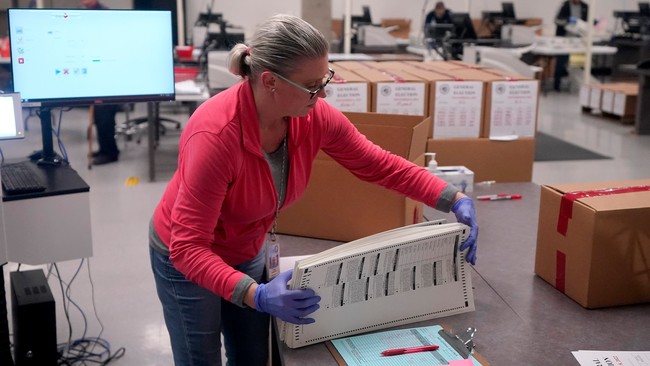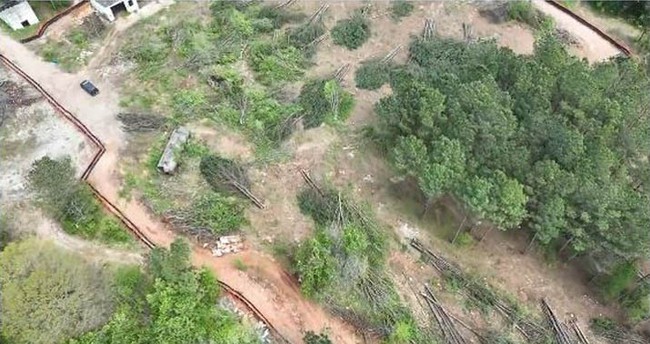Just over a week ago, I wrote about the Ninth Circuit Court of Appeals making the stunning move of reversing its ruling on Arizona’s voter registration law, which requires anyone who cannot produce proof of citizenship to only be allowed to cast a federal ballot.
The rationale, from the judges on the three-judge panel who were in the majority? The change this close to the November elections would cause “confusion and chaos”:
In its Thursday order, approved on a 2-1 vote, the court reversed last month’s decision by a “motions panel ” that blocked certain voter registrations. That panel “misunderstood the extent of confusion and chaos that would be engendered by a late-stage alteration to the status quo of Arizona’s election rules,” Judges Kim McLane Wardlaw and Ronald Gould wrote.
In dissent, Judge Patrick Bumatay “argu[ed] the earlier panel got it right. The state legislature cannot be bound by an agreement reached between a former secretary of state and the federal government without running into ‘serious separation of powers concerns,’ he wrote.”
Read more: STUNNING: Ninth Circuit Reverses Its Ruling on Voter Registration and Proof of Citizenship in Arizona
As I reported, Arizona’s Republican-majority Legislature was quick to respond to the ruling, stating that this would be pushed on an emergency basis to the U.S. Supreme Court to safeguard our state’s election results from illegals or voter fraud:
Senate President Warren Petersen vowed to seek an emergency stay from the U.S. Supreme Court “to make sure only American citizens are voting in our elections.”
Now, Petersen has followed through on his promise. He’s joined in the request by the state Speaker of the House of Representatives, Ben Toma, and the Republican National Committee (RNC):
The Republican National Committee (RNC) asked the Supreme Court to take emergency action to revive an Arizona law requiring voter registration applicants show proof of citizenship when using a state form.
The request, docketed Friday, also asks to reinstate Arizona’s prohibition of voting in presidential elections or by mail if someone has not met the proof-of-citizenship requirement, regardless of whether they used the state or federal form.
That last part–voting by mail–is a big deal in the Copper state, since many Arizonans sign up to receive mail-in balloting. According to Arizona’s Clean Elections Commission, “[i]n the 2020 General Election, approximately 89% of ballots cast were early ballots.” It’s clear that having this as part of the law could help reduce the chance of fraud.
Just a few statistics: At the time of this writing, Maricopa County, the most populous county in the state, has 14,220 active “federal only” registrations out of approximately 2.4 million active voters, according to the Recorder’s Office website.
The request to the Supreme Court justices read, in part:
“The district court’s injunction is an unprecedented abrogation of the Arizona Legislature’s sovereign authority to determine the qualifications of voters and structure participation in its elections.”
But time is running out for an answer. As the request noted, Arizona must have this settled right away, before Aug. 22nd, as ballots get printed shortly after that.
You can read the full request here.
This is a developing story. RedState will provide updates as they become available.





















Discussion about this post